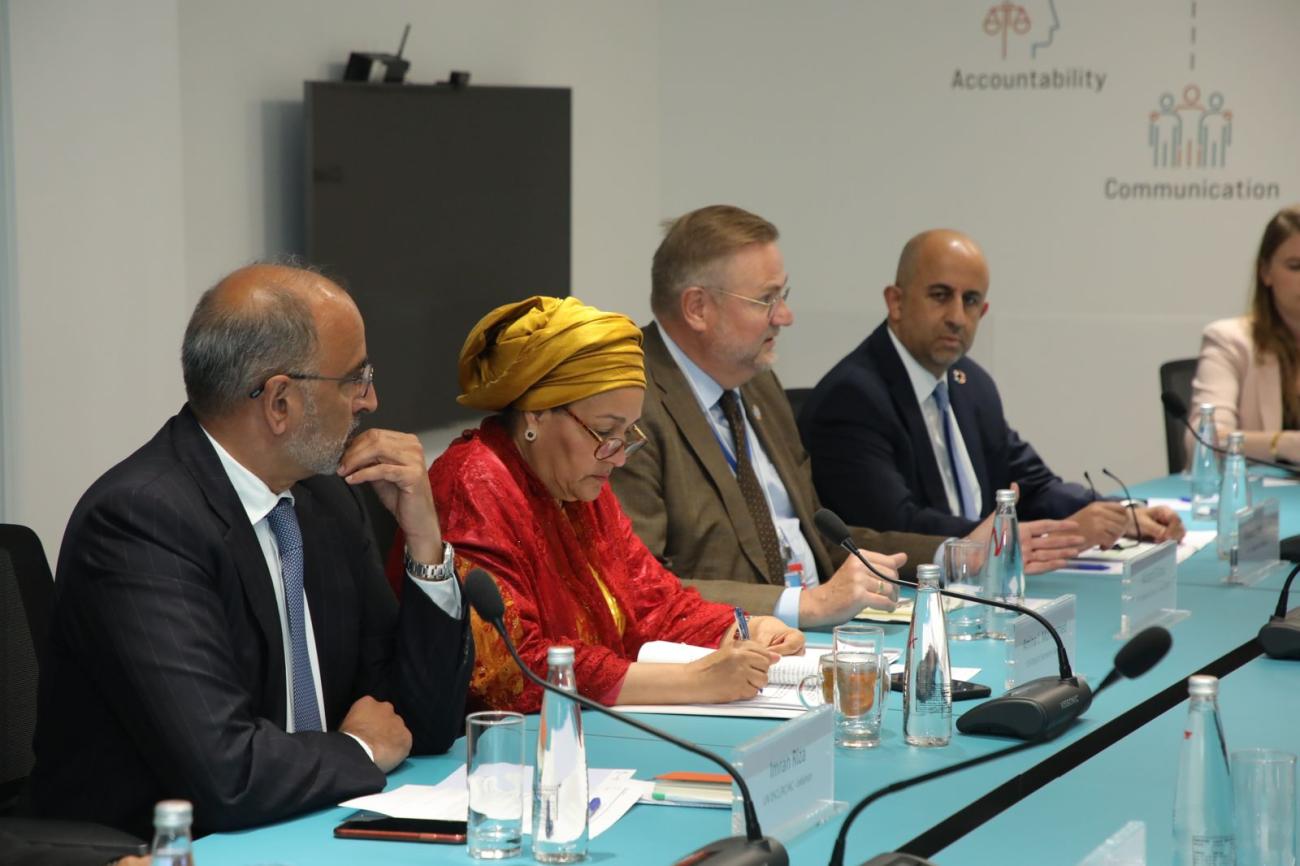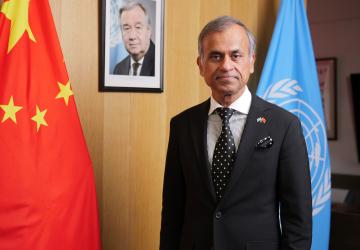"To rescue the SDGs, we need a global financing plan and a change of course"

The annual meeting between Deputy Secretary-General Amina J. Mohammed and Resident Coordinators across the Arab States region was held Tuesday in Beirut, Lebanon, an opportunity to review the challenges and progress in achieving the 2030 Agenda for Sustainable Development Goals (SDGs) in the Arab States. A region that faces profound and interrelated challenges, ranging from catastrophic natural events such as the devastating earthquake in Syria, to increased geopolitical tensions and unresolved conflicts.
Disparities between countries are manifold and growth paths diverge in the new global environment. The deputy chief reminded that for the second consecutive year, the world is no longer making progress on the SDGs. She noted that efforts and political commitments to the SDGs vary considerably from country to country. A total of 19 Arab countries covered by the UN Economic and Social Commission for Western Asia have yet to achieve a single SDG. Six Arab countries are two-thirds of the way to achieving the SDGs. The deputy chief further pointed out that issues of gender equality, decent work and economic growth, and sustainable food production remain challenges in some parts of the region.
"Lebanon is particularly facing deepening crises that require a transformative pathway that helps put the focus back on the SDGs to put Lebanon back on a development trajectory. It is precisely in this area that the UN Country Team in Lebanon will further invest in supporting the Lebanese Government and people through the operationalization of the UN Cooperation Framework" said Imran Riza, UN Deputy Special Coordinator, Resident and Humanitarian Coordinator in Lebanon.
By the end of 2024, every country in the Arab States region will have finalized the design of a new generation Cooperation Framework for its implementation. At least five countries will be in the evaluation phase, and thus on track for the second generation of Cooperation Frameworks. At this stage, it is therefore critical to accelerate implementation and make the case for the UN's more coherent and integrated collective offer to support the acceleration of the SDGs, leveraging key transformations in our Common Agenda. Resident Coordinators shall continue to support countries by focusing on policy transformations, partnerships, and coalition building to accelerate the momentum for implementing the SDGs and achieving results.
"In Bahrain, financing the SDGs is one of the challenges we are currently facing. We are currently conducting national consultations with different stakeholders, including the private sector, banks and businessmen, in the hope of finding viable solutions suitable for Bahrain," added Khaled El Mekwad, Resident Coordinator for the Kingdom of Bahrain, noting that Bahrain is making good progress towards the SDGs thanks to a dedicated and dynamic Ministry of Sustainable Development that places the SDGs at the top of its agenda.
The strategic engagement of the Resident Coordinators with their governmental counterparts is key to moving forward with the SDG summit in September. Ms Mohammed added: "We need to get the SDGs back on track as a unifying framework to pave the way for a better future. To rescue the SDGs, we need a global financing plan and a change of course. 2023 is a make-it or-break year and a time for transformation."
"In Jordan, His Majesty King Abdullah presented a transformational vision of a modern Jordan," said Resident Coordinator in Jordan, Sheri Ritsema-Anderson. "So this is a wonderful opportunity to bring together the country's work with the United Nations and see how we can support this transformational vision and help achieve the goals that Jordan has put forward that are in line with the SDGs."
The deputy chief further explained that the strategic engagement of the Resident coordinators would also be expected to support the governments at the Climate Ambition Summit in September, in the run-up to the COP28, convened by the Secretary General. Where the focus will be on taking accelerated action this decade and renewing their ambitious plans to reduce greenhouse gas emissions to zero.
"Given the United Arab Emirates (UAE)'s priority for COP28, which is also a very important priority for our region as a whole, it is fundamental that we come together to find out how we can interconnect our priorities across the region," added Dena Assaf, Resident Coordinator in the UAE.
This story was prepared by UN DCO. To learn more about the work of the UN in the Arab States region click here.













